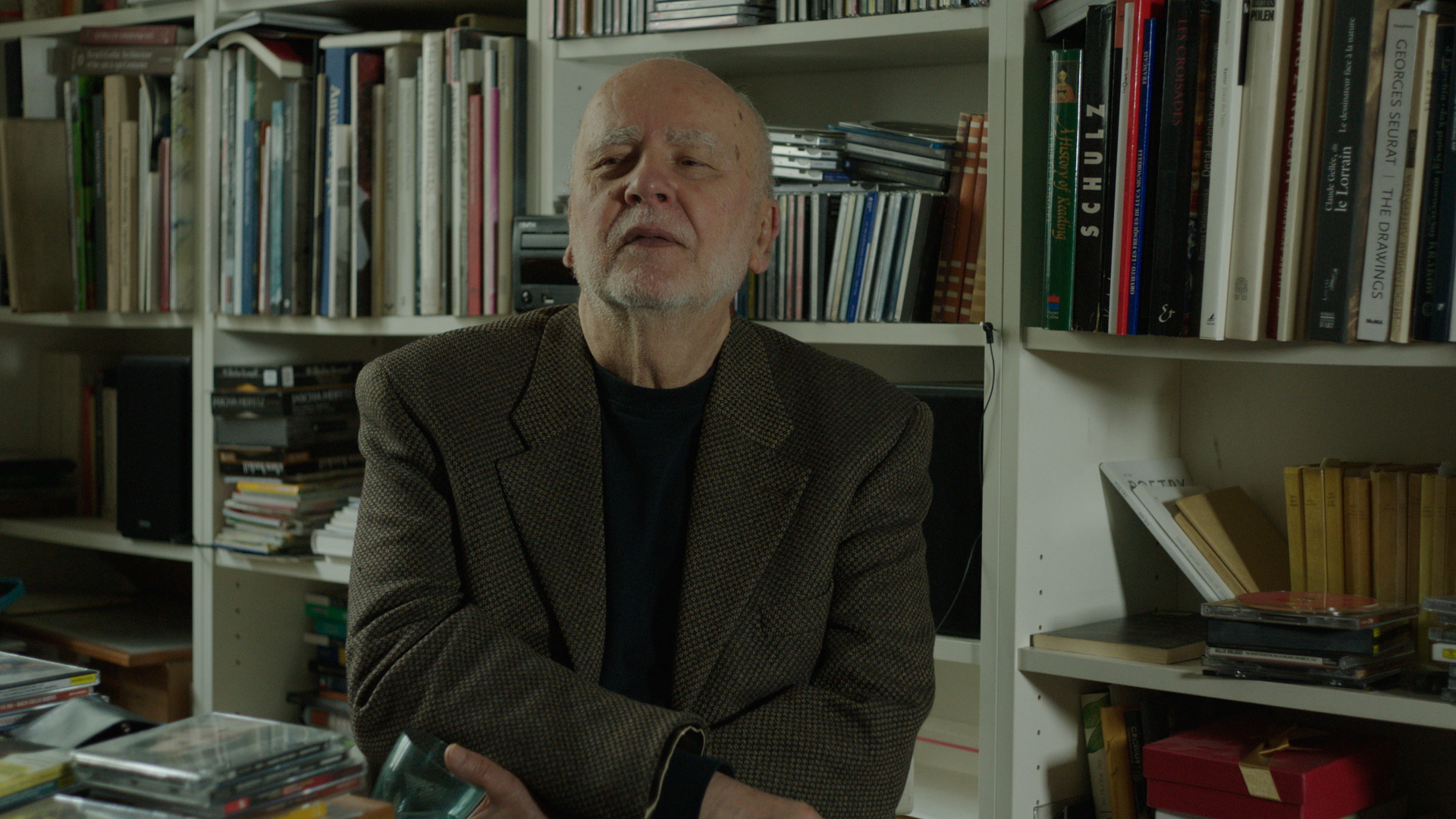NEXT STORY

Martial law puts an end to my dreams
RELATED STORIES

NEXT STORY

Martial law puts an end to my dreams
RELATED STORIES


|
Views | Duration | |
|---|---|---|---|
| 31. Solidarity, Solitude | 48 | 01:55 | |
| 32. The Flying University | 43 | 03:09 | |
| 33. The decline of communism | 40 | 03:00 | |
| 34. Martial law puts an end to my dreams | 45 | 02:44 | |
| 35. Happy times in Paris | 57 | 02:59 | |
| 36. France rejects my poetry | 49 | 04:46 | |
| 37. Paris-Houston | 47 | 02:24 | |
| 38. Tremor | 45 | 02:55 | |
| 39. My 'American episode' | 54 | 03:35 | |
| 40. My poem appears in The New Yorker | 53 | 03:38 |


The year was 1981. In the spring, I'd gone to the United States. It was the first time I was there. I was staying at a Creative Writing House either by accident or deliberately. There was an invitation to the state of New Hampshire – I needed a letter of recommendation. Zbigniew Herbert wrote me one which I'm very proud of. I came back from America towards the end of June and then went to Kraków at the start of September intending to stay there for a short while and then to travel to Paris to my new love since my first marriage had ended and the very real prospect of being with Maja now presented itself. So I came back to Kraków intending to stay there for a while, to put my affairs in order, see my parents, my friends, to check on my apartment and so on. When I arrived, Solidarność was already full-blown – full-blown but at the same time, a little sad because you could feel, people knew already that this wasn't going to work, that it was approaching its death throes. There were all those countless strikes, those clashes with the police. And there was no political perspective because it was obvious that this monolith, this communist monolith wasn't going to let this pass that this wasn't going to work. However, a powerful energy had been unleashed in Poland and I was fascinated to see this even though it was on the decline. That's when I noticed that my friends seemed to be replaying the enthusiasm of those first days, as if they wanted to show me what I had lost and how wonderful all of this was. I'm glad I knew that much at least because I already knew that I wasn't going to be a bard for this movement, that it wasn't something that I could support absolutely without any reservations, that I couldn't incorporate it into my writing and that it wasn't going to be the main trend that I'd be following.
Jest rok '81. Jeszcze wtedy wiosną pojechałem do Stanów Zjednoczonych. To był mój pierwszy pobyt w Stanach. Byłem w takim Domu Pracy Twórczej, przypadkowo czy nie przypadkowo. Zaproszenie do stanu New Hampshire – list rekomendacyjny tam był potrzebny, taki list. Napisał mi go Zbigniew Herbert, z czego jestem dumny. Wróciłem z Ameryki pod koniec czerwca i w pierwszych dniach września przyjechałem do Krakowa z takim zamiarem, że zostanę krótko w Krakowie, pojadę do Paryża do mojej nowej ukochanej, bo rozpadło się moje pierwsze małżeństwo i... i pojawił się bardzo realny plan następnego związku z Mają. Tak że przyjechałem do Krakowa z myślą o tym, że będę tam, ureguluję moje sprawy, zobaczę rodziców, przyjaciół, zobaczę co się z mieszkaniem dzieje i tak dalej. Przyjechałem w momencie właśnie takiej rozdmuchanej Solidarności – rozdmuchanej, ale już trochę smutnej, bo już się czuło... już jakoś ludzie wiedzieli, że to się nie uda, że to już była trochę agonia. Były te niezliczone strajki, starcia z milicją. I jakby nie było perspektywy politycznej, bo widać było, że monolit... monolit komunistyczny nie odpuści, że to się nie uda. Chociaż była tak gigantyczna energia rozbuchana w Polsce i to było dla mnie szalenie ciekawe, zobaczyć to, chociaż właśnie zdawałem sobie sprawę, że... że to jest trochę schyłkowe. Ale wtedy zauważyłem, że moi znajomi, moi przyjaciele troszeczkę jakby dla mnie odgrywali znowu entuzjazm tych pierwszych dni – że chcieli mi pokazać, co straciłem i co... jakie to wspaniałe. I to bardzo się cieszę, że przynajmniej tyle widziałem, bo to... Ale już... już trochę wiedziałem też, że... no, że ja nie będę poetą tego ruchu, że to nie jest coś, co ja w sposób absolutny mogę... mogę... to znaczy poprzeć tak, bez problemu, ale nie mogę tego wcielić w moje pisanie, że to nie będzie moja główna droga.
Adam Zagajewski (1945-2021) was a Polish poet, novelist, translator and essayist. He was awarded the 2004 Neustadt International Prize for Literature, the 2016 Griffin Poetry Prize Lifetime Recognition Award and the 2017 Princess of Asturias Award for Literature. He is considered as one of the leading poets of the Generation of '68 or the Polish New Wave (Polish: Nowa fala) and is one of Poland's most prominent contemporary poets.
Title: The decline of communism
Listeners: Andrzej Wolski
Film director and documentary maker, Andrzej Wolski has made around 40 films since 1982 for French television, the BBC, TVP and other TV networks. He specializes in portraits and in historical films. Films that he has directed or written the screenplay for include Kultura, which he co-directed with Agnieszka Holland, and KOR which presents the history of the Worker’s Defence Committee as told by its members. Andrzej Wolski has received many awards for his work, including the UNESCO Grand Prix at the Festival du Film d’Art.
Tags: Zbigniew Herbert
Duration: 3 minutes
Date story recorded: March 2018
Date story went live: 25 April 2019